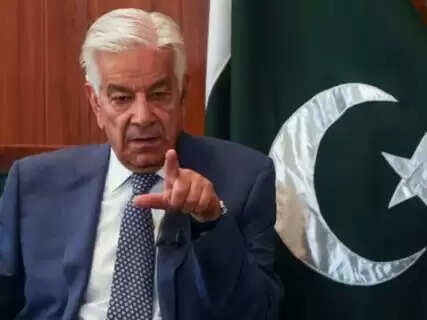
In a dramatic shift in relations, Pakistan's Defense Minister, Khawaja Asif, has issued a blunt and serious warning to Afghanistan, stating that his country's patience with cross-border terrorism has come to an end.This comes as tensions between the two neighbors have reached a boiling point over a recent surge in terrorist attacks.Speaking in Pakistan's National Assembly, Asif's message was clear: “Enough is enough.” His fiery address followed a series of violent incidents, including clashes that recently led to the deaths of Pakistani soldiers.For a long time, Islamabad has accused the Afghan Taliban of giving safe haven to the Tehreek-e-Taliban Pakistan (TTP), a militant group responsible for numerous attacks on Pakistani soilOfficials in Pakistan feel that despite numerous discussions, their concerns have not been addressed by Kabul. Asif stated that diplomatic efforts to persuade the Afghan Taliban to act against TTP hideouts have failed, and Pakistan will no longer tolerate the situation. He warned that if attacks continue, there could be "collateral damage," hinting that Pakistan might take action against terrorist hideouts within Afghanistan This warning was seemingly put into action with recent reports of Pakistani airstrikes inside Afghanistan, including in the capital, Kabul.Adding fuel to the fire is the contentious issue of Afghan refugees. Asif has taken a hardline stance, insisting that millions of Afghan refugees in Pakistan must return to their home country. He has accused some refugees of being disloyal and linked the presence of undocumented migrants to the increase in terrorist attacks This has led to an ongoing mass deportation campaign that started in late 2023, a move that has drawn criticism from international human rights organizationsThe Afghan Taliban have strongly denied Pakistan's accusations. They have condemned the alleged airstrikes as a violation of their country's sovereignty, calling them an "unprecedented, violent, and heinous act. The government in Kabul has consistently denied that it allows its territory to be used for attacks against Pakistan and has warned of serious "consequences" if the strikes continue.This sharp exchange of words and military action marks a significant downturn in the relationship between the two nations. Once cautious allies, they now find themselves in a state of open hostility, raising serious concerns for the stability of the entire region.
Around the web

